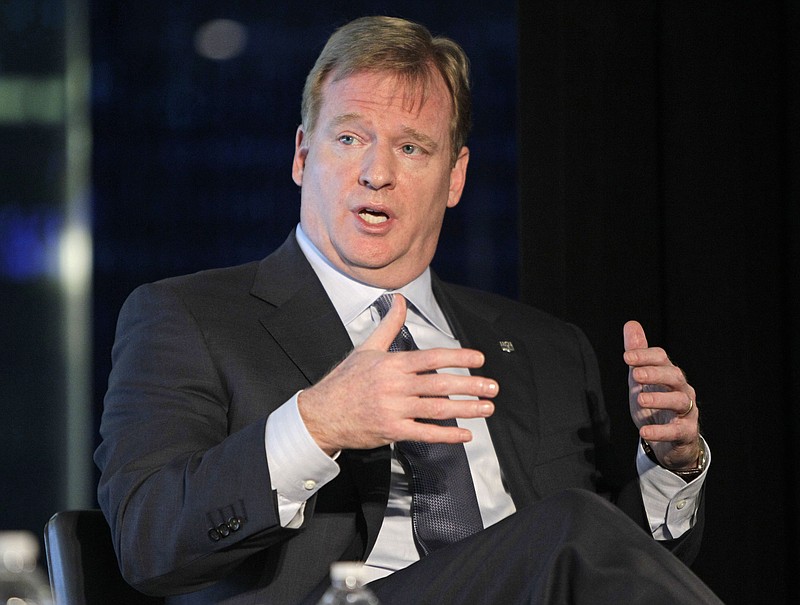It's a week before Super Bowl Sunday, and the pro football fever that usually stirs even the casual fan across America into a frenzy is hardly a hot flash this year.
It has something to do with the teams, of course. The game has all the looks of a snoozer.
New England's there - again. The Patriots have been there eight out of the last 17 years. They're like the University of Alabama in college football and the New York Yankees in baseball. They're so good that you either love them or you hate them. There's no in-between.
And Philadelphia's the opponent. The Eagles posted a 46-50 record for the six years before this one and hadn't won a divisional playoff game when it first won its division since 2004. That's when former University of Tennessee at Chattanooga wide receiver Terrell Owens was a star there.
But the lack of interest is more than two Northeast teams playing in the frozen Midwest of Minneapolis, which is predicted to have a low of -3 and a 20 percent chance of snow on Super Bowl Sunday.
It's that the National Football League fell from its perch this year. The sport that surpassed baseball as America's favorite pastime in the 1970s and never looked back is looking back. And if it takes a good look at itself, it wouldn't like what it is seeing.
Unfortunately, the league allowed politics to open the door with quarterback Colin Kaepernick's first national anthem kneeling during the 2016 preseason and never closed it. Worse, it didn't seem to want to, even as fans stayed away from stadiums and television ratings dropped.
But, oh, no, the learned sports journalists wrote. The drop-offs at the beginning of the season have nothing to do with any protests by the athletes on the field, where the stated grievances by the millionaire players ranged from alleged police brutality to President Donald Trump. No, nothing to see here. Nothing to be worried about.
Except there was.
By the end of the 2017 regular season, 22 teams saw fewer fans in their stadiums, resulting in a 3 percent drop from 2016. Television viewership fell by 9.7 percent over 2016, including significant plummets in Sunday, Monday and Thursday night prime-time contests.
Shockingly, the sport that once brought people together had the highest unfavorable rating - 40 percent at one point - of any major sport in 2017.
Commissioner Roger Goodell became nervous enough at the ratings early in the season that he penned a letter to owners, saying "we believe everyone should stand for the national anthem...to honor our flag and our country, and our fans expect that of us." But, he said, we also "care deeply about our players and respect their opinions and concerns about critical social issues."
A subsequent league executives meetings produced no policy change, though, and only the commissioner's tepid statement that he wants the league "to stay out of politics."
What Goodell misunderstood was that in not stopping the kneeling when it started that he allowed politics in the game.
Polls said a majority of Americans felt the kneeling was not appropriate, and Trump being Trump couldn't help but weigh in to agree. So the numbers continued to fall, though the number of players still kneeling by the end of the season was fewer than 20.
Alas, with Super Bowl LII around the corner, the NFL stepped in it again. Last week, it rejected an advertisement in the Super Bowl program from the American Veterans organization that included the two-word message "#PleaseStand."
It was, the organization wrote to Goodell, "a simple, polite request that represents the sentiment of our membership, particularly those whose missing or paralyzed limbs preclude standing."
An NFL spokesman said the program was no place "for advertising that could be considered by some as a political statement."
Never mind that the league has allowed political Super Bowl messaging in the past, including one ad mentioning the supposed pay gap between men and woman and one with pro-immigration themes, both last year.
But just to clarify the latest controversy: Players kneeling to protest during the anthem - not a political statement. A program advertisement honoring veterans and suggesting standing during the anthem - a political statement.
We're not kidding ourselves to think that a second straight Atlanta Falcons appearance in the Super Bowl, or one by the upstart Tennessee Titans, or if T.O. (Owens) were still playing for the Eagles, wouldn't generate a lot more Chattanooga interest.
But we believe many once-rabid pro football fans have seen their interest dimmed. They get enough politics - too much, probably - from their traditional news sources, social media outlets and late-night comedians. Why do they need it in their sports? Why, indeed?
